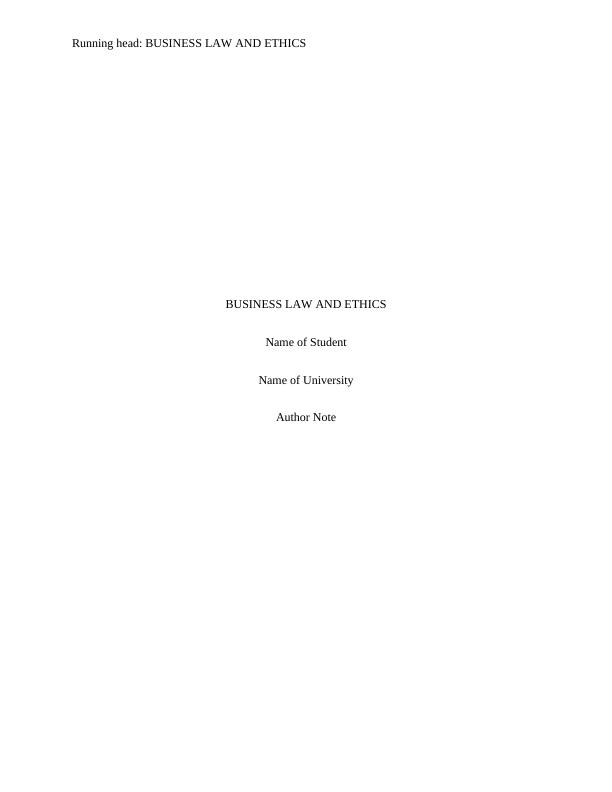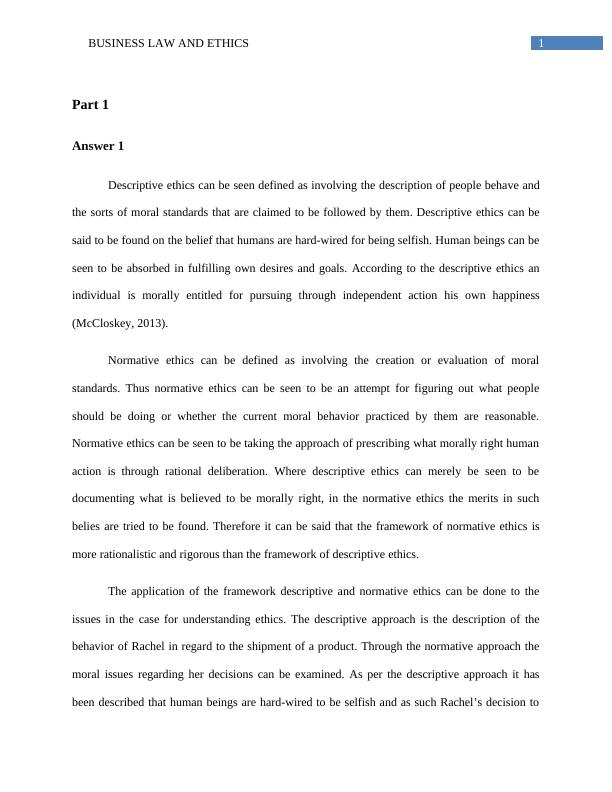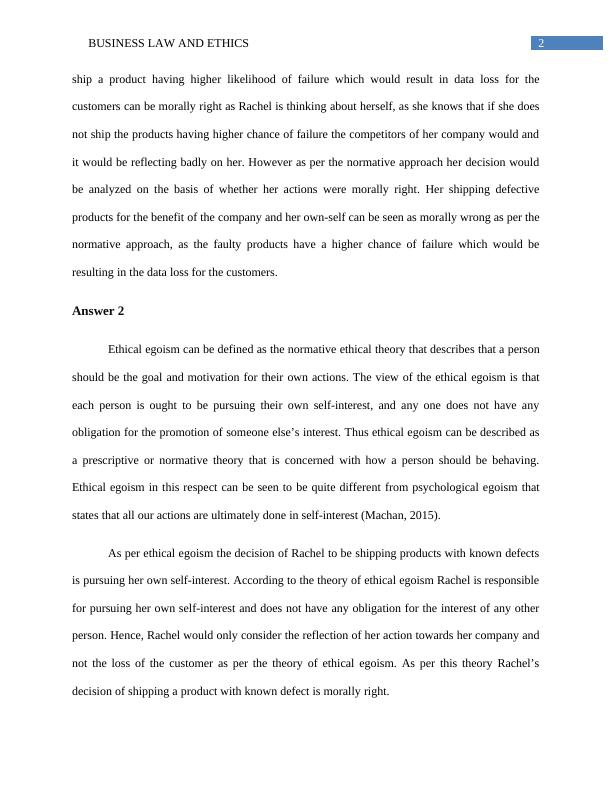Business Law and Ethics: Descriptive and Normative Ethics, Ethical Egoism, Utilitarianism, Virtue Ethics, and Kohlberg's Theory of Moral Development
This assignment requires students to explore fundamental concepts and theories in business ethics and apply them to a case study.
7 Pages1434 Words96 Views
Added on 2022-10-12
About This Document
This document discusses the concepts of descriptive and normative ethics, ethical egoism, utilitarianism, virtue ethics, and Kohlberg's theory of moral development in the context of business law and ethics. It also applies these concepts to a case study and provides insights into the moral and ethical implications of the actions taken by the individuals involved.
Business Law and Ethics: Descriptive and Normative Ethics, Ethical Egoism, Utilitarianism, Virtue Ethics, and Kohlberg's Theory of Moral Development
This assignment requires students to explore fundamental concepts and theories in business ethics and apply them to a case study.
Added on 2022-10-12
ShareRelated Documents
End of preview
Want to access all the pages? Upload your documents or become a member.
Ethical Egoism Annotated Bibliography 2022
|4
|898
|26
Ethical Egoism
|7
|842
|458
Accounting Theory: Deontology, Teleology, and Ethical Theories
|9
|2547
|420
BMO2004 - Descriptive Ethics, Normative Ethics
|6
|1209
|305
Egoism or ethical egoism can be described
|16
|2908
|31
Business Ethics and Issues Report 2022
|11
|2699
|23



